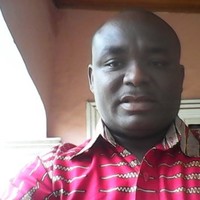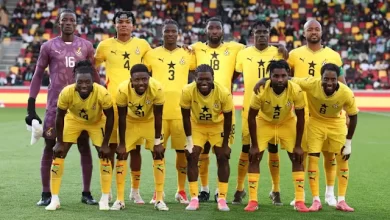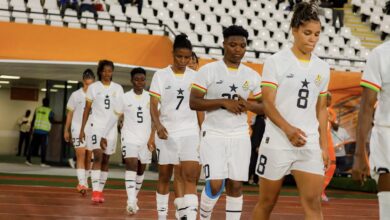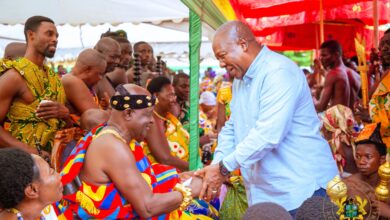
Ghana’s presidential elections will usher in a new leader as President Nana Akufo-Addo steps down after completing his constitutionally limited second term in office. This marks Ghana’s fifth presidential succession since the return to multiparty democracy in 1992, reinforcing the country’s reputation for predictable and rules-based transitions of power. Notably, three of these transitions occurred between rival political parties, highlighting Ghanaians’ commitment to respecting electoral outcomes and power-sharing.
The two leading parties in this election are Akufo-Addo’s New Patriotic Party (NPP) and the National Democratic Congress (NDC). The NDC candidate is John Mahama, who served as president from 2012 to 2017. Mahama lost highly competitive elections to Akufo-Addo in 2016 and 2020, but he solidified his democratic credentials by graciously accepting his narrow defeat in 2016 and facilitating a smooth transfer of power.
The NPP’s candidate will be Vice President Dr. Mahamudu Bawumia, a former Deputy Governor of the Central Bank known for his technocratic background. As the first Muslim leader of the southern-dominated NPP, Bawumia positions himself as a bridge-builder across Ghana’s diverse electorate.
Given the tight margins in recent elections and the parity in Parliament—each party fielding 137 representatives—this election is expected to be highly competitive. Ghanaians have largely accepted the outcomes of past elections due to the leadership exhibited by candidates and their trust in the fairness of the country’s institutions.
The Electoral Commission is recognized for its professionalism, independence, and integrity, maintaining these standards through transparency and consistent communication with all parties. To enhance voter participation, the Commission has implemented continuous voter registration since the 2020 elections.
Ghana’s democracy is bolstered by a vigilant civil society that has been instrumental in advocating for electoral reforms, expanding citizen engagement, and enhancing trust in the electoral process. Initiatives such as televised debates between presidential candidates have educated voters on the candidates’ positions on critical policy issues. Allegations of corruption receive significant media attention, ensuring accountability.
The Inspector-General of Police (IGP) plays a crucial role in safeguarding the independence of the electoral process. This was evident during the 2023 by-elections in Assin North, where the IGP’s engagement with local party leaders helped calm initial tensions and instill confidence in security arrangements. The contested seat was ultimately won by the NDC.
Ghana’s military is also recognized for its professionalism and neutrality. Based on lessons from previous electoral cycles, the military takes a supportive role in electoral security, allowing the police to lead efforts.
Despite these strengths, Ghana’s democratic institutions face challenges. Rumors about Akufo-Addo attempting to replace the IGP have circulated, though the NPP has denied these claims. The police have faced criticism for heavy-handed responses to protests. In 2023, the Supreme Court ruled that the President unlawfully dismissed the Auditor-General in a case initiated by civil society reformers. Additionally, a minority of media outlets controlled by political interests contribute to partisan coverage, fostering polarization.
The 2024 elections occur against a backdrop of significant economic challenges. The COVID-19 pandemic, disruptions to supply chains due to the Russian invasion of Ukraine, and insufficient fiscal discipline have resulted in rapid inflation. An emergency $3 billion IMF bailout has placed the NPP on the defensive.
Furthermore, as violent extremist organizations (VEOs) increase their activities in the Sahel, Ghana faces the risk of violence spilling over from Burkina Faso. Proactive engagement with local communities will be essential to counter VEO messaging that seeks to amplify grievances and foster distrust toward the government.
As Ghanaians approach the 2024 elections, they must navigate both regional security and national priorities. Healthy debate and the articulation of competing visions are vital for genuine elections and the self-correction inherent in democracies. Citizens will need to control the narrative surrounding the elections to prevent polarizing rhetoric from undermining the country’s hard-won democratic institutions.
Recent findings from Afrobarometer reveal that while Ghanaians support the continuation of key government programs—such as the Free Senior High School initiative (85%), the Planting for Food and Jobs program (81%), the One District One Factory initiative (71%), and the One Village One Dam policy (60%)—there is significant opposition to the electronic transactions levy (E-levy), with 79% favoring its discontinuation.
Economic Concerns and Priorities for the Next Government
When asked about pressing issues for the next government, Ghanaians identified unemployment as the top concern (41%), followed closely by infrastructure and road development (38%), and healthcare (33%). These priorities reflect a public focus on tangible improvements in job creation, connectivity, and essential services.
The report highlights growing economic challenges. An alarming 82% of the population reported experiencing some level of poverty over the past year, with 45% facing moderate to high levels. This marks a stark increase from 2017 when only 19% reported similar distress. Seven in ten respondents experienced a lack of cash income at least once in the past year, with many facing shortages in essential services: 54% struggled to access medical care, 44% reported difficulties with water availability, and 42% had trouble securing cooking fuel.
Dwindling Optimism and Negative Assessments of Government Performance
A majority of Ghanaians express dissatisfaction with the country’s current direction, with only 45% expecting economic conditions to improve in the coming year. Public ratings of the government’s economic performance have plummeted, reflecting frustration over rising living costs and insufficient access to essential services.
As the nation heads into an election season, these survey findings signal that Ghanaians seek continuity in popular social programs while also demanding a shift in economic policies to better address rising unemployment, infrastructure needs, and healthcare access. The push for sustainable policies amid growing economic concerns will likely shape political debates and influence voter choices in the 2024 elections.
Story by: Alexander Kukah




